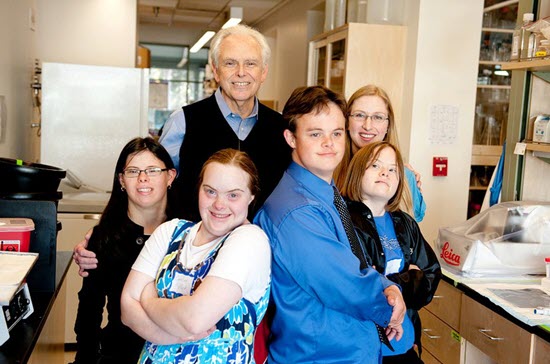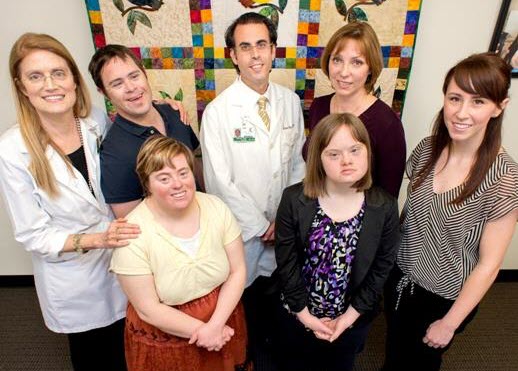About Us

The Down Syndrome Center for Research and Treatment (DSCRT) is one of the first programs in the country to connect academic research with treatment of adults and children with Down syndrome.
An estimated one in every 691 babies is born with the condition. Children with Down syndrome are at risk for congenital heart defects, respiratory and hearing problems, childhood leukemia, and thyroid conditions. They typically also have mild to moderate cognitive impairment that affects learning, memory and speech. This is an important topic for research.
With increased health care, education, and societal support, people with Down syndrome are living longer, fuller lives. But as they age we are discovering an increased occurrence of the symptoms associated with Alzheimer's disease. In fact, many individuals with Down syndrome over age 40 show the brain changes typical of Alzheimer's disease. By age 50, more than half show signs of dementia.
Our goal is to apply cutting-edge basic research to develop treatments that will help people with Down syndrome improve their cognition and forestall the onset of Alzheimer's disease. Members of this special population continue to live fuller, healthier lives. We hope to build on this progress and advance their potential even further.
William Mobley, M.D., Ph.D.
Executive Director, UC San Diego Down Syndrome Center for Research and Treatment

LIFE EXPECTANCY FOR PEOPLE WITH DOWN SYNDROME IN THE U.S.
1929: 9 years
1983: 25 years
Today: 60+ years
